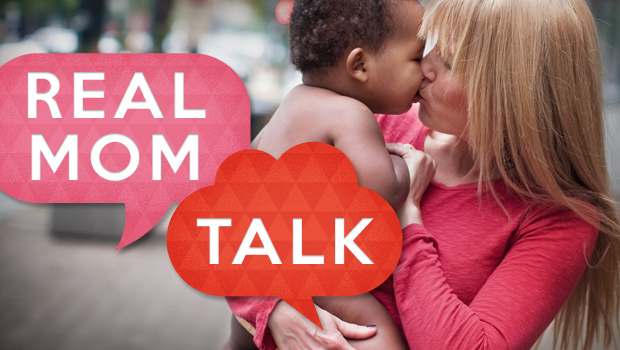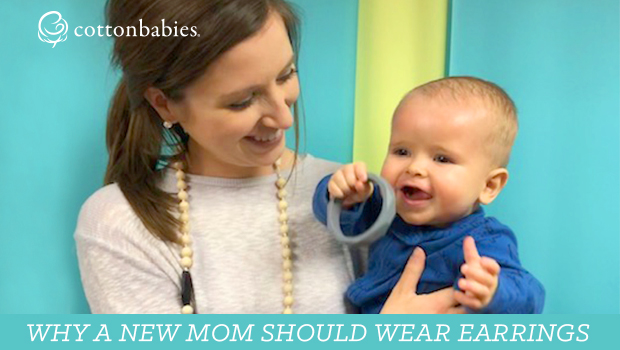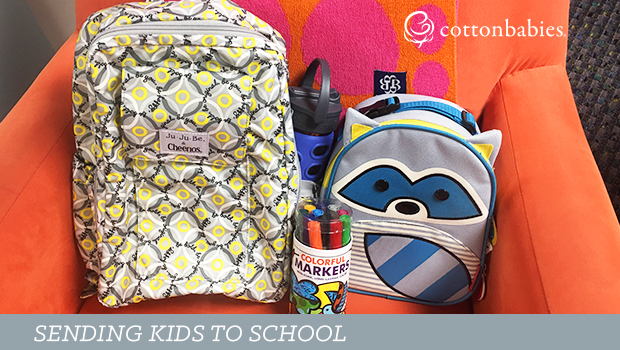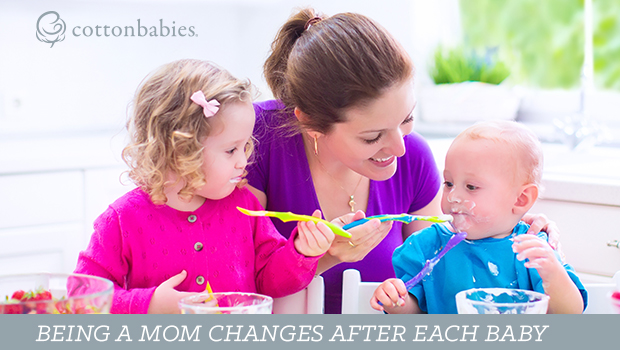
This week, the American Academy of Pediatrics recommended that pediatricians screen mothers of newborns for postpartum depression. According to the AAP, “Estimated rates of depression among pregnant and postpartum women can range between 5 percent and 25 percent.”
Postpartum depression may appear to be the baby blues at first — but the signs and symptoms are more intense and longer lasting, eventually interfering with your ability to care for your baby and handle other daily tasks.
Symptoms may include:
- Loss of appetite
- Insomnia
- Intense irritability and anger
- Overwhelming fatigue
- Loss of interest in sex
- Lack of joy in life
- Feelings of shame, guilt or inadequacy
- Severe mood swing
- Difficulty bonding with the baby
- Withdrawal from family and friends
- Thoughts of harming yourself or the baby
Education alone isn’t enough. As women, we need to talk openly about PPD, reassure others that it’s nothing they’ve done wrong and encourage each other to get help if necessary. Have you been diagnosed with postpartum depression? Have you been helped or helped others who have battled PPD? Share your story, help us dispel the myths about PPD.




Comments
16 Comments
My daughter is almost 2 now, but the memory of my severe post partum depression is still quite vivid.
I had a long, exhausting labor with my daughter and after more than 30 hours I consented to an epidural…and felt as if i had failed to give my child a safe birth experience.
When my daughter was born 5 hours later we had a very difficult time breastfeeding. That difficulty went on for 6 weeks (i don’t know how i hung in there-and went on to breastfeed for 15 months) 6 weeks of pain everytime my duaghter latched!
The difficulty doing my motherly duty of feeding my baby led to what I can only describe as resentment for my sweet newborn. I hated my husband because he couldn’t make it any better, I hated myself for failing as a mother and once I even told my husband that I hated the baby.
PPD is serious and moms suffering form it NEED help, encouragment and support from their partners and families.
Thanks for posting this blog Cotton Babies
PPD is a painful thing to go through. I am lucky that I have a wonderful support system, but I still suffered quite a bit. It amazes me how many women suffer silently through this and don’t reach out for help or have any help offered to them. I am thrilled that obstetricians are now screening for PPD, and that community hospitals and doctors offices are offering support groups for post-partum adjustments. That group saved me last year, and I don’t know where I’d be without therapy, group support, a wonderful family & friend network, and medication for a time. Please, if you are suffering PPD, get some help. If you know someone who you think is dealing with PPD, offer them help, and understand that you really need to listen to that person — they are going through a time when their reality has been horridly altered, and feel quite alone.
That was suppose to be SHOULDN’T be embarrassed about.
I had PPD after my second child. It was made worse by the fact that she was a very difficult and needy child (she is still my drama queen) I didn’t see the signs myself and I used the excuse that I was just tired. It wasn’t until I was almost better that I realized that I had PPD but even then I only rarely admitted it and only to my DH. I was completely embarassed because nobody ever talked about it. When I got pg with my third baby I made my hubby come with me to my very first appointment and told him to make sure that they know that I had ppd because I was to embarassed to admit it. Come to find out, my ob/gyn was suffering from ppd at that time and I found so much more comfort in being treated by someone who understood. I started taking my “Happy Pill” (thats what I called them) about a month before I had my last and it helped so much. I wish I had gotten help the first time around. Now I make sure to talk openly about it because it isn’t something that you should be embarrassed about and try to hide. I know that my experience has helped others get help and I hope it helps even more.
I had postpartum depression. I had a very colicky daughter, but no other risk factors. Nursing went well and I had tons of support. I definately think that it affected my bonding with my daughter. it all got better on its own. My husband was very open to talking and very supportive. I also went to a pp breastfeeding group once a month. I wish they would have met more often. Nothing feels worse than when you cannot soothe your own child.
@ Andrea
I also had the same feeling tward my husband as he was deployed for 15 months. I tried counseling and when he returned home I really didn’t want him to touch me. I felt horrible about it but since I found treatment for my PPD I love to kiss him and I don’t mind when he walks by and touches me now. It really changed our lives as a couple, not just my life.
Thank you for sharing this. I think more women need to be aware of PPD and reconize the symptoms. It is nothing to be ashamed of and I know that now. I lost my father a month before I got pregnant, we moved for my husbands job to a new town and new state. It really took a toll. I have always had anxiety issues but after my daughter was born I cried everyday over nothing. I felt tired all the time and had zero motivation. I had mastitis at my 6 week post partum checkup and was so upset, my doctor asked me if I would be crying if I wasn’t in pain. She saw the symptoms when I didn’t. She encouraged me to call her if I needed something to help. After crying for 3 hours straight one day I called in and she prescribed me some meds which I have found very helpful. I didn’t want to take medication, but in the long run I needed to do what was best for my family and myself. I asked my husband if he thought any differently of me since I needed something to stabilize my mood and he told me no. He wants me to be happy. My 3 year old can tell a big difference too. He is able to climb on me and love on me without me getting upset. It does not make you a bad mother. Don’t be afraid to get help. I never thought I would need it but I did and I am glad I got it.
The biggest issue for me with my PPD was admitting I needed help. I got to the point of near-suicidal, and I would just sit and watch my 8 week old son and sob uncontrollably. Talking to someone, anyone, is the biggest step. And knowing you’re not alone. I actually blogged my journey at http://dealingwithppd.blogspot.com It’s so important to get the word out about PPD because SO many moms brush it off as hormone changes or changes in routine with a new baby, but many times it’s more than that. And thanks to CottonBabies for this post as well!
depression of any kind looks different to different ppl and it’s amazing how many people don’t realize or acknowledge their own feelings because depression ISN’T talked about
i have suffered from depression since i was an early teen. my symptoms would vary, even disappear for awhile. but we’ve figured out that the thing that triggered my PPD with my DD (now 3.5yrs) was the birth control. i was SO angry all of the time. at EVERYONE. the only person i didn’t feel totally hate was my DD. i felt like everyone was trying to take my daughter away from me. in reality, they saw me sleep deprived and hurting and wanted me to try to rest. i had to go on meds in order to half stabilize myself. it totally stabilized after i got the IUD out that was causing even more issues.
i was much better after the birth of my DS, i didn’t want to leave them and had a panic attack that my mom wanted to take my DD for a couple of days (to give me a little break from L&D from DS and to bond w him)… and i refused.
now that i’m PG with #3 i’m working thru yet another round of depression, and i hope that i can bond with this baby prenatally before he or she arrives. otherwise, i know that it will be harder after baby is born.
I agree that PPD can be so different from mom to mom. I didn’t recognize my symptoms until my daughter was almost 2 and I realized that there was more to my thoughts and feelings. I still refused to seek help, I’m not sure why, I suppose I just felt ashamed. My second daughter was born later that year and as her first birthday approached, things went downhill quickly. When I started considering hurting myself and letting my anger get out of control, I knew I needed to ask for help. I have been on medication (the lowest dose possible since I’m still nursing) since January and my life has turned around. I didn’t even realize many of my symptoms until I felt differently and realized that I really did lack interest in life and my children. I had a very hard time concentrating and had feelings of being severely overwhelmed when I was taking care of my children at times, which were other symptoms I didn’t recognize. I had feelings of anger and resentment towards my husband, I felt very distant from him and didn’t want to be intimate with him at all (not just a lack of sex drive, I didn’t want to hold hands, kiss or hug). Since he was deployed until our daughter was over a year, I didn’t even realize those feelings until he was home.
So many of my thoughts and feelings I had those first few years aren’t even usually listed on the PPD symptom list, so I dismissed many of them. I really wish there was more information out there that helped women recognize PPD and depression. You don’t have to feel “sad” you can feel just not “happy” in general. It doesn’t have to affect your life, many moms are fulling functioning with PPD, they just aren’t really “living” thier lives.
I’ve found myself really reaching out to other moms now, ones that I see symptoms in and haven’t recognized it yet, and others that have recognized them just feel alone, like no one can help them. Please talk to someone if you even think you may have signs of depression! Do not let things get to the point that you worry about what you might do next if you don’t seek help. There is no shame in PPD and you may be suprised by how many moms have delt with it!
I agree we need to talk about it more. PPD looks so different for each person. I thought that because I had joy in mothering and had no negative feelings toward the baby, that I was just normal new mom tired. I didn’t get that the anger toward my husband and people around me, lack of energy, lack of motivation, and all that were actually PPD until she was 4 months old and I couldn’t get myself up off the couch to help her roll over one day.
I’m not sure if my diagnosis was PPD, but I was definitely depressed. I didn’t realize it until after my daughter turned 1 and I stopped breastfeeding. That’s when it got really bad. I was tired all the time, anxious, sad, unable to get daily tasks done, and just felt blah. I loved my daughter and took care of her okay, but everything else was a struggle. My OB gave me some medicine that really helped and I’m still working on finding a balance and taking time for myself. I had a lot of changes happen in my life very rapidly so I think also played a role in my depression. Plus, I live 2500 miles from ALL family.
If you are struggling at all, talk to someone and you just might be surprised to find out they experienced the same thing. And certainly don’t be afraid to take some medicine. It doesn’t have to be forever (as in my case). Sometimes you just need a few months to get on track. But, even if it takes longer than that, it’s okay.
I am also glad you posted this. I suffered from PPAD (Postpartum Anxiety Disorder) a variant on the traditional PPD where I was super hyper, suffered from intense insomnia, heart racing, panic attack-type symptoms. I am so glad I spoke up and went to see my OB. I got some great medication that was safe while breast feeding. I am so glad I had a supportive husband and family. For a long time, I felt ashamed of having to take the medication but then I met a couple of moms in my MOPS group who shared similar stories and one who took the same meds I was taking. It was such a comfort. Last year, we even did a panel at our MOPS group on PPD and had one mom go to the doctor for the first time because of our meeting! We definitely need to talk about it with other moms and encourage one another. It means so much!
I had pretty bad PPD with my daughter (2 yo), but had no problems with my son (1 yo). I did not want to do ANYTHING but sit on the couch or sleep with my daughter. I am not sure what was different but I was really grateful that I didn’t have to go through that again, and so was my husband I’m sure. I am glad I was able to recognize that something was going on and went to the Dr. They were super understanding and also said that it is pretty common and not to feel ashamed.
Thanks for posting this. I had a tough time over the summer with my newborn, and while I never got in to see a doctor, many of the PPD symptoms were there. A lot of it stemmed from having trouble nursing and therefore feeling inadequate. Through a lot of support from my husband and close friends, I’m doing better overall but still have my days…
PPD is very real and affects more women than people realize. I read a great book during this time, called “Living Beyond PostPartum Depression” by Jerusha Clark. If you are feeling these symptoms, please don’t try and carry the burden on your own!
Thanks for posting this! I have been suffering from PPD for almost 6 months now. I don’t feel like hurting my baby and am not having difficulty bonding, but everything feels a bit grayer. It is a struggle to leave my baby and go to work each day. Thankfully, it is getting better little by little. I didn’t feel this way with my 1st child.